

Uh oh...
It appears that you're using a severely outdated version of Safari on Windows. Many features won't work correctly, and functionality can't be guaranteed. Please try viewing this website in Edge, Mozilla, Chrome, or another modern browser. Sorry for any inconvenience this may have caused!
Read More about this safari issue.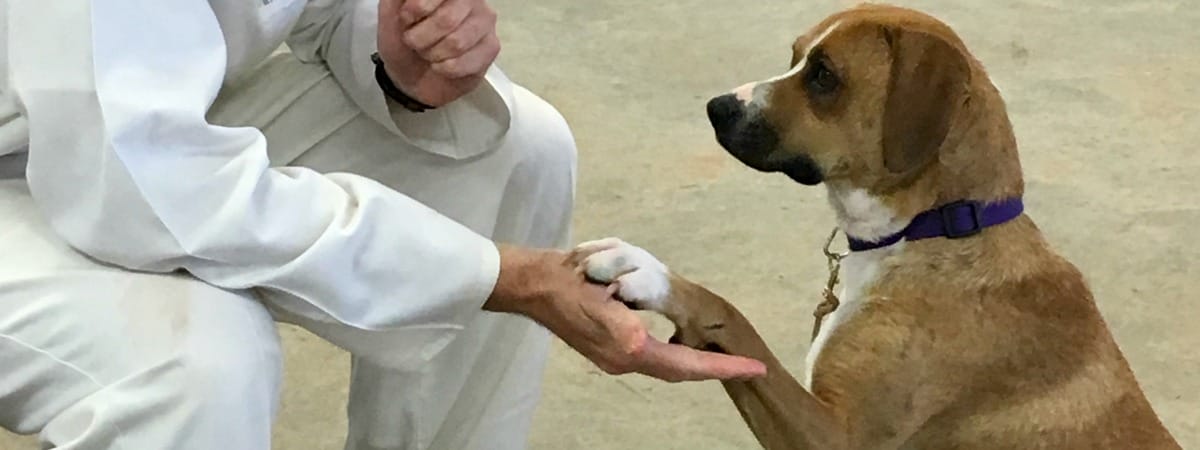

Losing a pet is always difficult. It doesn’t matter if they die of an unexpected condition or because they are old, it still hurts. The decision to get a new dog isn’t meant as a replacement, but an opportunity to give a new companion some much-needed love. The Paws in Prison program is designed to provide families with well-trained dogs so they can focus on love and less on developing obedience skills.
For years my husband and I raised English Mastiffs. Last year we lost our 13-year-old female mastiff, Lily, to old age. Shortly after, we lost Lightning, a 6-year-old mastiff and Lily’s ‘grandson,’ to spleen cancer. It was a difficult time, and while we didn’t want to rush into getting a new dog, we live in the country and just enjoy the company of dogs. Exploring 200 acres of property without a dog or two to run it with you feels awfully lonely. We weren’t sure if we wanted to take on a puppy and had been considering a rescue dog. When we heard about the Paws in Prison program, we got excited and felt this was a perfect match for us.

Our little boy is too young to remember Lily and Lightning, and we want him to know the joy of having a four-legged companion. Our lives are so enriched by having a dog, and we wanted to return the favor by adopting a rescue dog. The Paws in Prison program would provide us with a dog that was well trained. That alone sealed the deal for me because teaching a toddler to go to the bathroom in a potty while simultaneously trying to teach a dog to go potty outside was not something that appealed to me.
Paws in Prison
Paws in Prison founding officer Renie Rule discovered Puppies for Parole, a similar program that began in 2010 in Missouri. The program’s goal is to save dogs’ lives. Inmates train select shelter dogs to make them more appealing to potential forever families. Paws in Prison operates under the same ideals.
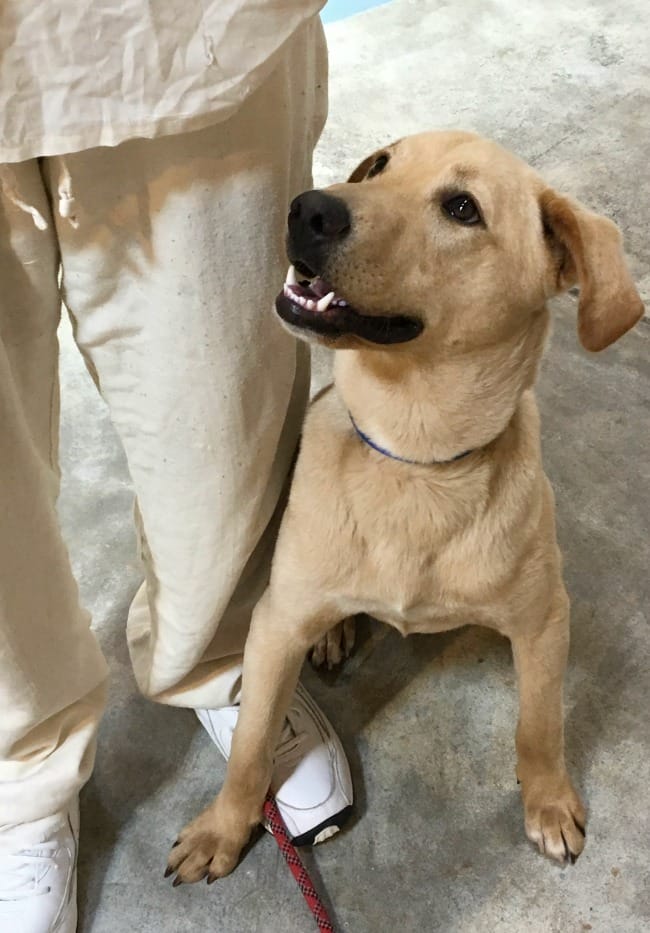
In August 2011, the Chair of the UALR Department of Criminal Justice Dr. Mary Parker, former Arkansas Department of Corrections (ADC) Assistant Director Dina Tyler, and former ADC Public Information Officer Shea Wilson joined Arkansas Hospice Foundation Executive Director Renie Rule on a visit to the Missouri program to research the program and develop an implementation plan for Arkansas. The governor granted approval and the Paws in Prison program began at the Malvern Unit of the ADC in December 2011.
The ADC has partnered with several shelters and rescue centers in Arkansas and now operates the Paws in Prison program at six correctional facilities across the state. To date, over 1200 dogs have graduated from the program, and they are now graduating between 220 and 280 dogs annually.
Shelters and rescue operations that are involved in the PIP work closely with the ADC to ensure the success of the program. Shelters have trained assessors that perform temperament assessments on dogs who are potential matches for the program. A prison is a loud place, so dogs who can handle noise, commotion and lots of people are more likely to be chosen.
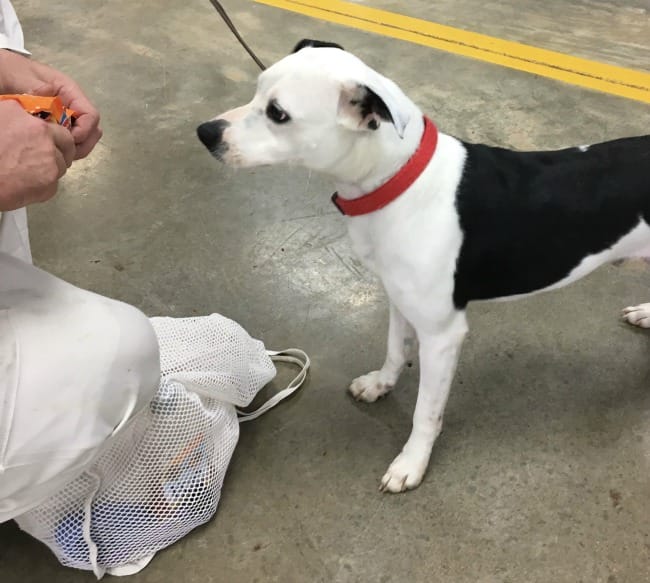
Training
Inmates in the participating facilities may volunteer to work as a PIP trainer. The inmate must submit an application and must be free of any behavior infractions for at least one year, must maintain discipline, cannot have any history of animal abuse and must have at least one year remaining on their sentence to qualify. Each inmate selected is assigned a partner trainer and completes their job as a trainer on a volunteer basis. Inmate trainers still have other jobs within the prison unit and do not receive compensation for serving as trainers.
According to Public Information Officer Solomon Graves, “It gives [the inmates] a win. They can say, ‘I did something positive. I made a difference. I am capable of making a positive contribution.’”
Inmates who are selected have received training and work with professional dog trainers who come to the facilities each week. The inmates work in pairs and spend 24-hours a day with the dogs. Each dog is trained to complete the American Kennel Clubs Good Canine Citizenship Test. Some dogs are even prepped as service dogs.
Victoria Vander Schilden, Executive Director of the Arkansas Paws in Prison foundation, believes the program especially benefits those inmates who will be released. The program provides them with a marketable job skill. “We had one trainer who began her own training business [upon release] and was charging $65 an hour for her services. Dog training is a service where the fact that you are an ex-con isn’t typically an issue.”
Vander Schilden also spoke of the morale boost in the barracks and units where the dogs are housed. They have seen improved security, enhanced interaction between inmates and staff and an overall boost in mood and morale. Other inmates get to interact with the dogs as well and, “Who sees a dog and doesn’t smile?”
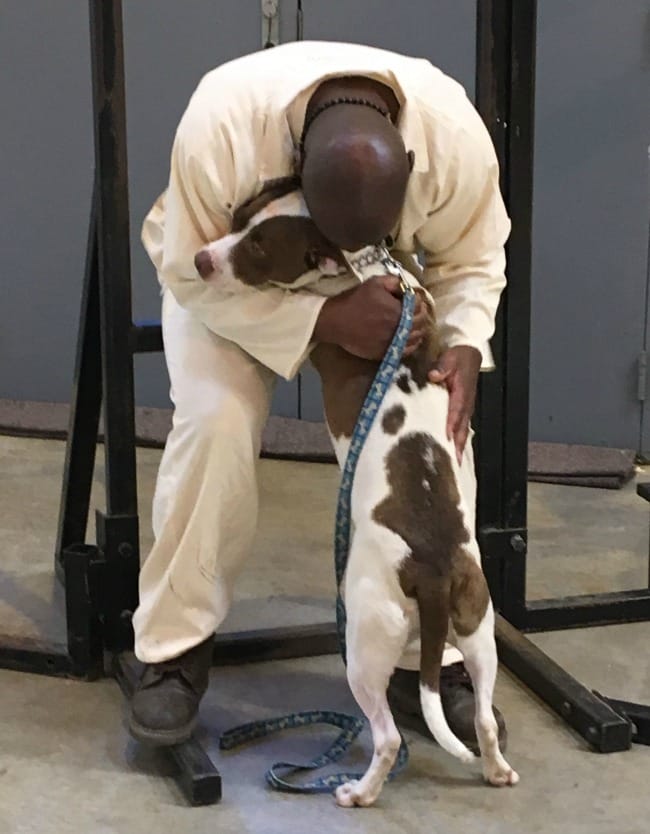
Adoption
As a potential adopter, you will connect with a shelter that is working with the Paws in Prison program. After viewing profiles of different dogs, we selected several that potentially met our needs through the Stone County Humane Society. After speaking with the staff, we narrowed our search to one dog and made plans to have an initial visit. SCHS encouraged us to bring our son to visit to make certain the dog was not only a good match for us, but also for him.
To visit Archie, our selected dog, we traveled to the North Central Unit of the ADC in Calico Rock. We entered the prison unit and were escorted to a lobby area where we met with Archie and his trainer, an inmate at the facility. Archie had only been in the program for a few weeks when we met him but was a fast learner. His trainer was excited to show off all of his tricks. You could sense the inmate trainer’s joy and pride as Archie followed each command. Archie was immediately drawn to our son, and our son was so excited when Archie would return the ball he had thrown for him.
The inmate trainer talked to us about Archie’s progress and informed us that Archie was a little shy at first and took about a week to start being comfortable with the training exercises. The trainer showed us some of the commands they were working on and shared his goals for Archie as he completed the last five weeks of the program. He was honest about Archie’s strengths and weaknesses and assured us that once we got home, Archie would adjust well.
Graduation
After we officially selected Archie for our family, we had to wait until the end of the training program to take him home. At the North Central Unit, the program concludes with a graduation ceremony which adoptive families are encouraged to attend. Archie had a class of nine graduates. Each trainer and dog used the opportunity to show off what they learned over the eight weeks.

As each inmate showcased his dog, the pride of accomplishment was clearly visible in their faces. Helping mold a dog to find a safe and loving home motivates many inmates to participate in the program. It’s the joy of knowing they made a positive impact in the lives of the dogs and the adoptive families.
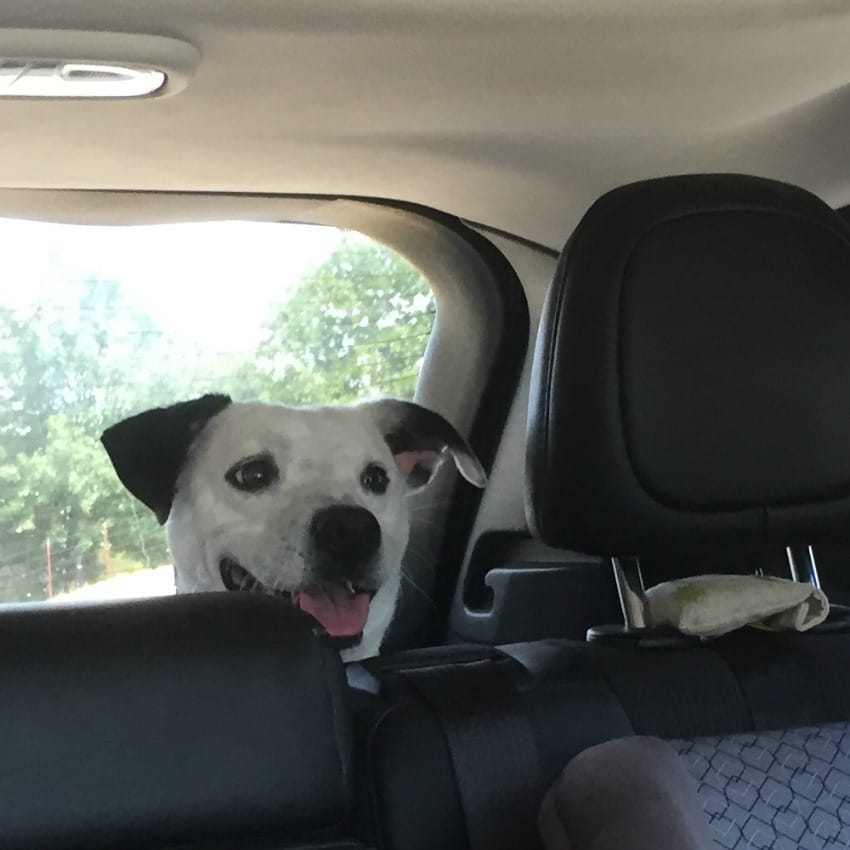
Forever Family
Archie has been with us for about a month now and is adjusting well. Bringing home a rescue dog, even a trained one, has its challenges. Archie needed time and lots of reassurance that our home was his and he was here to stay.
Archie is now flourishing and has made himself at home. He gets to run around our yard all day chasing chickens and shadowing our son. If he gets hot, he loves to splash into the pond or come into the air-conditioned house. He has commandeered the toddler recliner right next to our son’s play area. The only thing he’s not sure about is the kitten that likes to bat his tail around. I think he’ll come around though.

Around the state, the Paws in Prison program graduates approximately 45 dogs each month who are looking for forever families. If you are interested in adopting a Paws in Prison dog, you can get more information here.
All photos courtesy of the Arkansas Department of Corrections unless otherwise noted.
We do the work.
You check your email.
Sign up for our weekly e-news.
Get stories sent straight to your inbox!








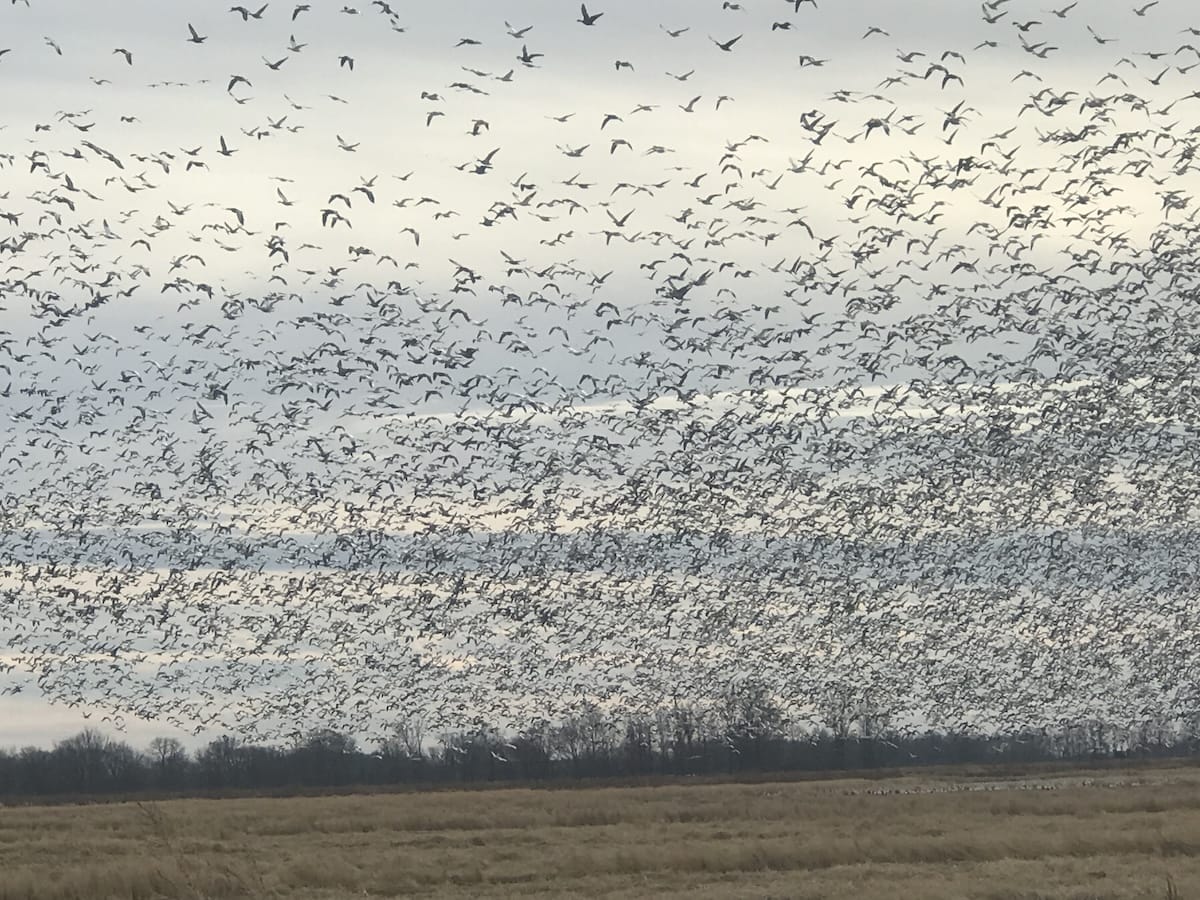



 Leave a Reply
Leave a Reply
Who would you ask to get a Paws in Prisons program started at a unit?
Hi Velda! Their contact information is found here: https://adc.arkansas.gov/contact-paws-in-prison
[…] cemetery when he was a few months old, and as luck would have it, he was selected to be part of the Paws in Prison program, where an inmate trained him until we adopted […]